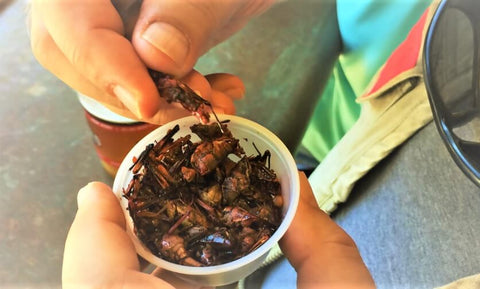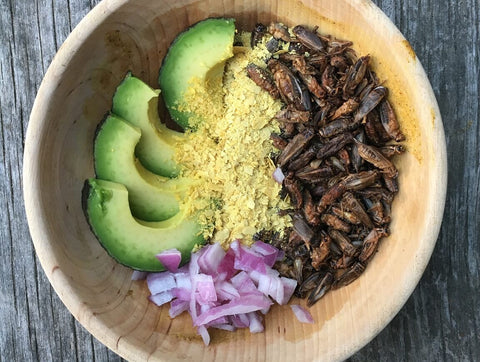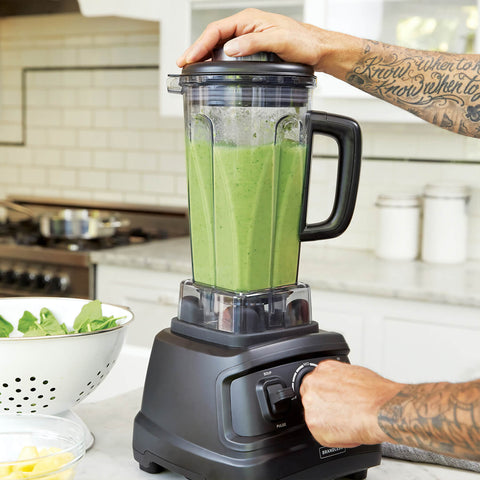Ever felt like you are having a ton of off days? You know. The type of day where you have already lost your car keys. Twice. Your brain feels like it’s in a constant state of fog and your sentences end in, “I forgot what I was saying” or “What is the word for…?”
Don’t. We. All. Honestly, some days it would be great to not have a brain fart in a major meeting. Not only that! Maybe having more energy for a simple hour of laptop work. Well there may be some natural nutritional solutions to help us out.
What are Nootropics?
A nootropic is a drug or supplement that enhances mental function in areas such as memory, motivation, concentration, and attention. The supplement can improve mental function by acting as a vasodilator for the brain. This gives the brain ample blood supply and tons of energy. Nootropics can also improve memory by protecting the neurons (brain cells) from inflammation and damage.
Essentially, "nootropic" is a pharmaceutical term introduced along with the creation of Piracetam. In the 1960's, Piracetam was the first ever pharmaceutical prototype for improving mental function. While the effectiveness of Piracetam is considered questionable, and the drug is much less widely available, the "nootropic" moniker stuck around.
Patients with schizophrenia, past stroke, ADHD, and vascular dementia benefit most from nootropics’s cognitive enhancement. In fact, a combination of nootropic supplements and anti dementia medication had a substantial effect on survivability in patients with dementia. While beneficial effects have been recorded, further studies need to be performed to conclude that nootropics and anti dementia medication have a symbiotic relationship in dementia patients.
Too Far?
Supersizing mental function has been a riveting topic of neuroscience for nearly twenty years, but how far is too far when it comes to neurological enhancement for healthy adults?
Some people believe nootropics and additional cognitive enhancers will build a future favoring an intellectually competitive culture over an emotionally sound human race. Others believe cognitive enhancers is a creative way to become superhuman.
Obviously, people with synthetic or pharmaceutical nootropics will have an advantage over those without. Similar to steroid abuse in sports, is nootropics just another way for people to have a leg up on the competition?
Ethic Talks Aside
Nootropics fall into two categories: synthetic or organic. Piracetam would be an example of a synthetic or lab made nootropic.
Unfortunately, there is very limited information on organic or herbal nootropics. The research studies on organic nootropics are known to be inconsistent and untrustworthy. This is usually due to a small participant pool and discrepancy against modifications. Nevertheless, a few renown research studies do show promising results, prompting the science community to perform more research.
The best part about organic nootropics is that they require no prescription. Below is a list of the best naturally occurring nootropics on the market. Let’s dive in!
Four of the Best Natural Nootropics
Ginkgo biloba
Ginkgo is one of the oldest living tree species in the world! Ginkgo is native to the regions of China, Japan, and Korea. The leaf can be eaten for nourishment or supplemental use. Once ingested, the ginkgo’s properties will impart protection to cells from oxidative stress and cellular death.
Ginkgo biloba has also been shown to aid in dementia. In the Anatomical Therapeutic Chemical Classification system, ginkgo is listed as an anti-dementia drug. A research study found that ginkgo in conjunction with anti-dementia medication can benefit dementia patients if taken consistently for a year. However, the results from research studies on ginkgo’s overall effectiveness with these health conditions are mixed.
The National Institute of Health warns consumers taking blood thinners or breast feeding to ask physician before supplementing with ginkgo. Side effects of taking ginkgo may include upset stomach, sleep problems, headache, and rash.
Panax ginseng (Asian Ginseng)
Asian ginseng is a traditional herb used in Chinese medicine for treatment of a variety of ailments including cognitive dysfunction. This particular ginseng variety is most notable for enhancing memory in healthy adults as well as aiding in treatment for Alzheimer’s.
A research study out of Korea concluded that ginseng taken consistently for more than five years will improve cognitive function in late life for healthy adults. Asian ginseng is able to enhance memory by increasing neurotransmitters in the brain through the herb’s acids Panaxadiol and Panaxatriol. Unfortunately, American ginseng does not contain a large ratio of these memory enhancing acids. Therefore, Asian ginseng is the preferred variety.
The National Institute of Health suggests that children, pregnant women, women nursing, and anyone prescribed blood thinners should not take ginseng of any variety without doctor approval first. Side effects of ginseng may include headache, sleep problems, and digestive discomfort.
Bacopa monnieri
Bacopa is a rice field weed described as having long leaves with purple flowers. Bacopa has been used for centuries in Ayurvedic medicine, which is a holistic approach to medicine that originates in India and dates back to about 1000 years.
It is not only used to treat Alzheimer’s but also anxiety, epilepsy, and insomnia. It has been shown to improve ADHD and anxiety disorders. Although there are mixed results to prove that bacopa enhances memory function in healthy adults.
Despite the National Institute of Health being rather silent on the use of bacopa as a supplement. You should consult your doctor before taking this supplement if you have cardiac, lung, or thyroid issues. You should also consult your primary physician if you are pregnant or breastfeeding.
Rhodiola rosea
Rhodiola rosea, otherwise known as the “golden root”, is an Arctic root most widely found in the colder regions of Europe and Asia. The root is most widely used in those regions to treat depression and prevent high altitude sickness. Additionally, research has found that rhodiola can alleviate mental fatigue in healthy adults. The root is essentially an adaptogen or supplement that provides cells with the ability to equilibrate in response to inflammation.
Rosea is the most promising organic nootropic to date. On the other hand, more studies need to be performed to support the root’s effectiveness.
The National Institute of Health states that rhodiola if taken orally may cause dizziness or dry mouth.
Better Be Safe
As you may have noticed, the common theme with supplements is to always discuss a new supplemental regimen with your primary care physician. This ensures you both have all the information before hand. Keep in mind, you will probably not see results until 6-8 weeks of consistent use. In fact, you may not see results at all. Each individual body metabolizes chemicals differently. And nootropics are just a possible solution to Monday brain fog, but we hope they can work for you!
Remember. If you witness any side effects listed above while taking nootropics, please contact your physician immediately. You want to be smarter, not itchier!




